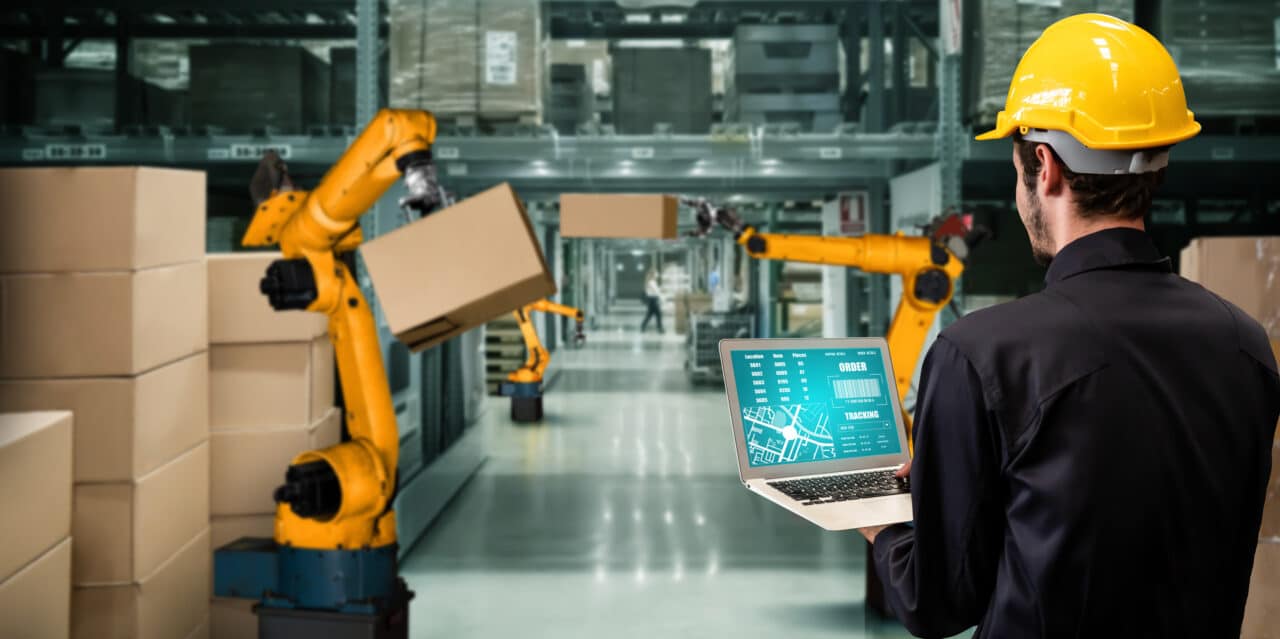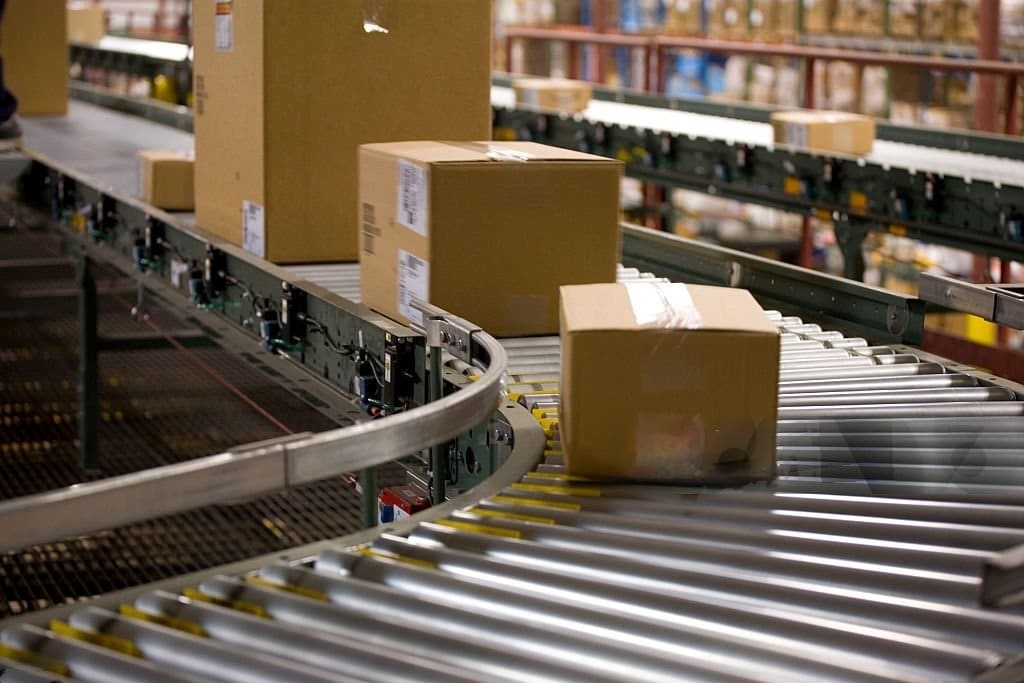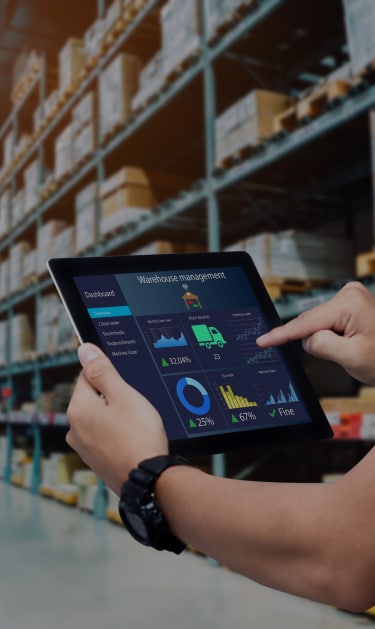Shaping Modern Logistics in the Future
The logistics industry is undergoing a significant transformation, fueled by technological advancements and evolving customer expectations. As we delve into the future, it's…
On March 28, 2024

The logistics industry is undergoing a significant transformation, fueled by technological advancements and evolving customer expectations. As we delve into the future, it's…
On March 28, 2024
The logistics industry is undergoing a significant transformation, fueled by technological advancements and evolving customer expectations. As we delve into the future, it’s evident that automation will be at the forefront, shaping the logistics landscape. There are bound to be various changes in the key trends, such as automation, blockchain, sustainability, and further developments in the Internet of Things (IoT), followed by a few challenges that pertain to implementing these innovations.

Automation is undergoing a revolutionary transformation within logistics, seamlessly integrating robotics and artificial intelligence (AI). The global logistics sector, forecasted to reach a staggering $6.8 trillion by 2028 with a compound annual growth rate (CAGR) of 4.5% (IMARC Group), is witnessing the application of robotics technology in tasks ranging from picking and packing to inventory management and last-mile delivery. The result? Not only heightened operational efficiency but also a reduction in dependence on manual labour.
AI’s role extends to logistics automation, optimizing routes, predicting demand, and enhancing supply chain visibility. Machine learning algorithms, and analyzing extensive datasets, open doors to improved decision-making, cost reduction, and elevated customer experiences. As AI continues to evolve, logistics companies are well-positioned to leverage these technologies to maintain a competitive edge in an ever-dynamic market.
The logistics landscape is undergoing a transformation propelled by the Internet of Things (IoT), weaving a network of interconnected systems. IoT sensors and devices deliver real-time data on shipments, warehouse conditions, and transportation assets, fostering continuous monitoring and operational enhancements. Intelligent logistics solutions, such as smart warehouses and transportation systems, leverage IoT connectivity for efficient inventory management and punctual deliveries.
The adoption of IoT in logistics promises greater efficiency, cost reduction, and enhanced visibility throughout the supply chain. As smart technologies become ubiquitous, logistics companies have the opportunity to optimize operations, gaining a competitive edge in an increasingly interconnected world.
Blockchain technology, renowned for its decentralized and transparent nature, is gaining momentum in logistics. It establishes a secure platform for transactions, transforming processes like contract management, freight tracking, and payment settlements. Blockchain ensures trust and accountability through immutable records of transactions, while smart contracts automate contract execution, simplifying intricate supply chain agreements.
Blockchain-enabled freight tracking systems offer real-time visibility, reducing delays, and boosting supply chain efficiency. As logistics companies embrace blockchain, they contribute to a more transparent and secure ecosystem, meeting the demands for accountability in an ever-evolving industry.

The future of logistics is intricately tied to sustainability and green initiatives, with automation technologies playing a pivotal role in achieving environmental goals. AI algorithms optimize routes, curbing fuel consumption and emissions, while warehouse automation minimizes waste and optimizes storage space. In the face of growing environmental concerns, logistics companies are under increasing pressure to adopt sustainable practices, and automation emerges as a key enabler in this transition.
By embracing automation, logistics companies can play a vital role in fostering a greener future, meeting the rising demand for sustainable logistics solutions and positioning themselves as responsible stewards of the environment.
In the future, logistics will witness increased interconnectivity as companies collaboratively integrate their ecosystems. Automation technologies act as catalysts for this integration, enabling seamless information sharing, end-to-end visibility, and improved efficiency throughout the supply chain.
By leveraging automation, logistics companies can seamlessly connect their systems with suppliers, manufacturers, retailers, and customers. Real-time data exchange facilitates better demand forecasting, optimized inventory management, and synchronized production and delivery schedules. This integration is poised to drive efficiency, reduce lead times, and enhance overall supply chain performance.
While the allure of automation in logistics is undeniable, it brings forth a set of challenges and considerations that must be addressed.
The adoption of automation technologies often necessitates a substantial upfront investment, covering hardware, software, and implementation expenses. Companies must meticulously assess the return on investment (ROI) and formulate clear financial strategies to justify and manage these initial costs.
The integration of automation may usher in shifts in job roles and skill requirements, potentially leading to workforce displacement. Implementing effective upskilling and reskilling programs is imperative to ensure that employees can adapt to new technologies and roles.
Data Security and Privacy Concerns
The heightened connectivity and data exchange associated with automation increase the risk of cyber threats and breaches, presenting a significant challenge to logistics companies. Robust cybersecurity measures are indispensable to safeguard sensitive information and maintain trust among stakeholders.

Integrating new automation technologies with existing systems can be intricate and may disrupt current processes. Companies must meticulously plan and execute integration to ensure seamless collaboration with suppliers, manufacturers, retailers, and customers.
The future of logistics is a tapestry woven with myriad possibilities. Automation technologies, encompassing robotics, AI, IoT, and blockchain, are driving efficiency, elevating visibility, and promoting sustainability. By embracing these transformative trends and adeptly addressing associated challenges, logistics companies can position themselves at the forefront of an ever-changing industry, meeting the evolving demands of customers and the market. The future of logistics is automated, interconnected, and sustainable, and it is incumbent upon companies to embrace these trends to thrive in this dynamic landscape.
How can we help you ?
Fill in the form